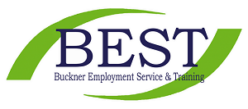Service definitions adapted from the OOD Provider Manual

Job Development
Job Development is utilized to prepare and assist Participants to contact businesses, apply and interview with employers, and to secure employment. Job Development should include instruction and guidance about how to locate potential job opportunities (e.g. networking, use of OMJ and other electronic job boards, newspapers, online, and “cold” calling); development of a resume and mock application template, and cover letters; how to answer interview questions including issues such as gaps in employment histories; requesting reasonable accommodations; addressing criminal histories; and managing online profiles/social media. This instruction and guidance should maximize the independence of the Participant to conduct his/her own job search. Based upon the needs of the job seeker, Job Development may also include the job developer updating the job seeker’s resume and mock application, sending out cover letters and resumes to potential employers, providing job leads to the job seeker to follow up on, review of the job seeker’s interview skills, follow up contacts with employers when applications have been submitted or when a job seeker has an interview, discussion of hiring incentives and tax credits with the business, and providing support in requesting and implementing reasonable accommodations. The outcome of the service is for the Participant to receive necessary supports to successfully obtain and maintain permanent employment.

Community Based Assessments
Community Based Assessments (CBA) are utilized to assess the Participant’s job readiness and/or to provide information on a Participant’s aptitudes, abilities, behaviors, and preferences to determine if a specific employment opportunity would be an appropriate match. CBAs shall be conducted in competitive and integrated settings, except for limited circumstances when the Participant’s needs cannot be met in the community. CBAs provided in a non-integrated setting shall be transitioned to an integrated setting as soon as possible based upon the readiness of the Participant. The outcome of the service is to assess the Participant’s job readiness and to make recommendations for future services.

Job Coaching
Job Coaching, also referred to as On-The-Job Supports (OTJS), is utilized to provide assistance such as instruction to learn job tasks; to develop natural and peer supports; and adjusting to the work environment. OTJS may occur on-site or off-site, examples of off-site job supports could be contacts with the Participant before or after work to problem solve possible concerns that may impact employment. Providers shall perform a job task analysis for newly hired Participants and develop a support plan that identifies specific qualitative and quantitative performance standards based on the employer’s expectations and industry standards. The plan should project a systematic decrease of the intensity of supports as the Participant learns job tasks and adjusts to the work environment. OTJS are also utilized to provide continued supports to the Participant and/or employer after the Participant has learned the job tasks and reached his/her expected level of independence, to ensure stability of the placement, and enhance retention. The outcome of the service is that the Participant will be able to perform job tasks within the employer’s accepted quality and quantity standards and that the Participant will have successfully learned the job tasks and adjusted to the work environment.

Site Development
Site Development services are utilized to secure a potential employment setting that may be used to help either assess or address a Participant’s vocational barriers. Site Development may be authorized to secure a new business location for Community Based Assessments (CBA); in cases where a Participant needs an individualized site for Summer Youth (SY), not Summer Youth group sites; and Work Adjustment (WA).

Vocational Assessments
Vocational Evaluations are utilized to identify and evaluate a Participant’s current and projected vocational functioning. VE may include interviewing Participants, family members, and other involved service personnel (e.g. teachers, case managers, etc.). The outcome of the service is to identify and provide supporting data and documentation of viable employment options as part of the vocational counseling process.

Pre-Employment Service
Pre-Employment Transition Services are provided to students with disabilities (SWD) who have been determined eligible or are potentially eligible for Vocational Rehabilitation (VR) services. Services are used to improve the transition of students from school to postsecondary education and/or an employment outcome. Pre-Employment Transition Services include the following five (5) different sub-categories: 1) Counseling on Post-Secondary Opportunities, 2) Job Exploration Counseling, 3) Instruction in Self-Advocacy, 4) Work Based Learning, and 5) Workplace Readiness Training.
1) Counseling on Post-Secondary Opportunities
Counseling of postsecondary opportunities includes the exploration of training options available after graduation. Service may be provided one-on-one or in a group setting. Group activities may include education on enrollment in comprehensive transition or postsecondary educational programs at institutions of higher education such as: course offerings, career options, the types of academic and occupational training needed to succeed in the workplace, and post-secondary opportunities associated with career fields or pathways. Individual services may include advising students and parents or representatives on academic curricula, college application and admissions processes, completing the Free Application for Federal Student Aid (FAFSA), and resources that may be used to support individual student’s success in education and training, which could include disability support services.
2) Job Exploration Counseling
Job Exploration Counseling is utilized to assist students with disabilities (SWD) and includes information regarding in-demand industry sectors and occupations, as well as non-traditional employment, labor market composition, administration of vocational interest inventories, and identification of career pathways of interest to the students. Service may be provided one-on-one or in a group setting in a classroom or community setting. Service may be provided in school or the community and shall include discussion of the student’s vocational interest inventory results, in-demand occupations, career pathways, and local labor market information that applies to those particular interests.
3) Instruction in Self-Advocacy
Instruction in self-advocacy is utilized to assist students with disabilities to learn skills needed for greater independence. Service may be provided one-on-one or in a group setting. Group services may include generalized classroom lessons in which students learn about their rights, responsibilities, and how to request accommodations or services and supports needed during the transition from secondary to post-secondary education and/or employment. During these lessons, students may share their thoughts, concerns, and needs, in order to prepare them for peer mentoring opportunities with individuals working in the area(s) of their interest. Individual opportunities may be arranged for students to conduct informational interviews or mentor with educational staff such as principals, nurses, teachers, or office staff; or they may mentor with individuals employed by or volunteering for employers, board associations, or organizations in integrated community settings. Students may also participate in youth leadership activities offered in educational or community settings.
4) Work-Based Learning
Work-Based Learning is utilized for a student with a disability to experience and gain knowledge about the workplace. These services are those that would be most beneficial to an individual in the early stages of employment exploration during the transition process from school to post-school activities, including employment. Service may be provided one-on-one or in a group setting in a classroom or community setting. Work-Based Learning experiences in a group setting may include coordinating school-based job training, informational interviews to research employers, work-site tours to learn about necessary job skills, job shadowing, and/or mentoring opportunities in the community. Individual services may include work experiences to explore the student’s area of interest through paid and unpaid internships, apprenticeships, short-term employment, fellowships, or on-the-job training in the community.
5) Workplace Readiness Training
Workplace Readiness Training is utilized to improve social and independent living skills. Workplace readiness training may include programming to develop social skills and independent living, such as communication and interpersonal skills, financial literacy, orientation and mobility skills, job-seeking skills, understanding employer expectations for punctuality and performance, as well as other “soft skills” necessary for employment. Service shall include discussion of the following Conduct areas:
∙ Professional Skills: Workplace communication, written and verbal, with peers/supervisors, mean and how to demonstrate appropriate work ethics, teamwork, networking, health/safety, basic customer service, business organization/hierarchy, job seeking skills and understanding employer expectations;
∙ Personal Skills: Social and inter-personal skills development, enthusiasm/attitude, integrity, personal responsibility, time management, self-management, and life-long learning;
∙ Internet: Safety and self-representation online, social media and potential impact on job searches, how to conduct online job searches, filling out online applications, and telephone etiquette; and
∙ Independent Living: Financial literacy and management, budgeting, hygiene/dress, community access, transportation, household management, Orientation & Mobility Service may be provided in a classroom setting or be tailored to an individual’s needs in an education or community setting.

Travel/Driver’s Training
Travel Training is utilized to teach Participants how to travel independently on public transportation or in the community in their own private vehicle. The Provider shall assess the needs of the Participant and make recommendations to VR staff regarding in which areas the Participant may have barriers and strengths as well as the service needs of the Participant. Instruction should include topics such as: learning how to schedule transportation requests with transportation Providers; reading bus schedules; purchasing tokens/bus passes, training on the public transportation rules; and contingency planning in the event of an unexpected issue (e.g. a missed bus, getting off at the wrong stop, or using GPS to navigate). Provider staff may provide instruction by demonstrating how to ride public transportation with the job seeker until the Participant is independent. The outcome of the service is that the Participant will be confident and independent in his/her ability to work and travel around in the community.
